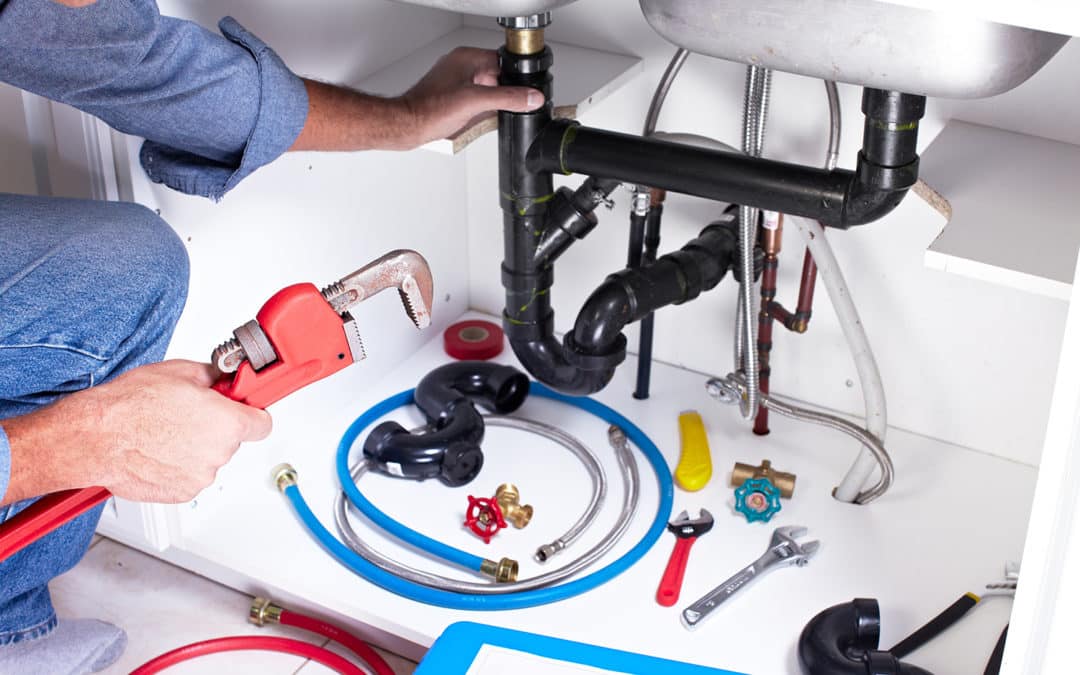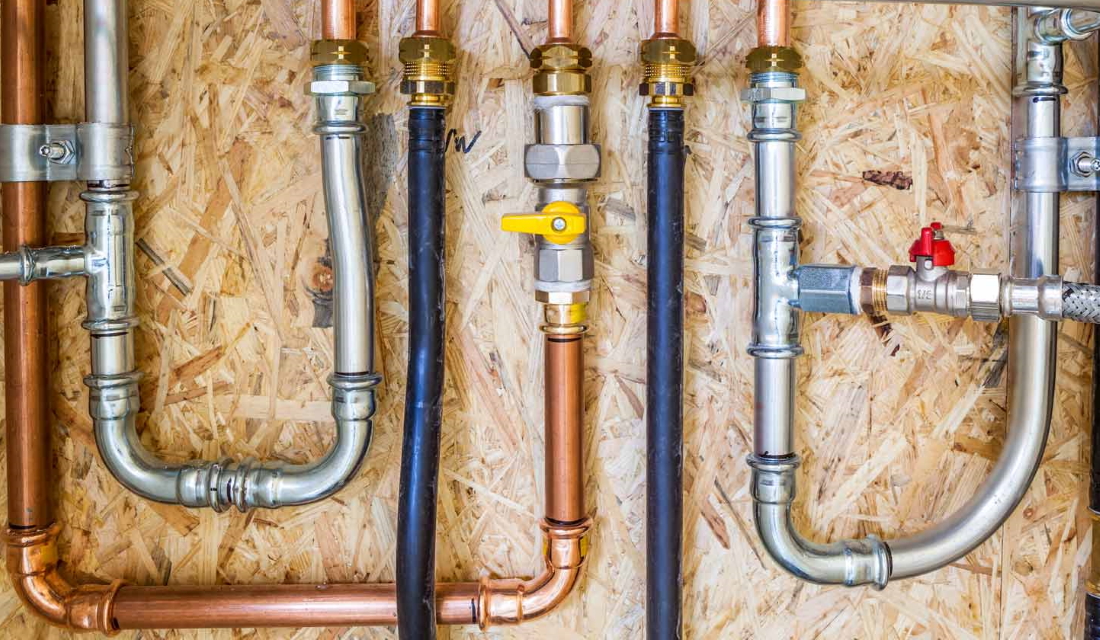What are your opinions about Understanding Water Hammer - Pipelines, Piping?

Intro
Have you ever before switched off a tap and heard a loud bang or knocking audio coming from your pipes? That unsettling noise, usually described as a sudden thud or clunk, is known as water hammer. It's not just a bothersome quirk of older homes-- water hammer can happen anywhere, and if left uncontrolled, it can result in more substantial pipes issues. In this short article, we'll debunk water hammer, explore its reasons, and discuss useful ways to deal with and prevent it. Consider it as your utmost guide to taming those rowdy pipes at last.
What is Water Hammer?
Water hammer is a shockwave of pressure that happens within your pipelines when water flow stops or changes instructions suddenly. Imagine a crowd of joggers running down a slim corridor, just to have a door bang shut at the end. The unexpected quit causes a domino effect, leading to a crash of bodies. In your pipes system, water imitates those runners, and when it's required to stop all of a sudden, it creates stress waves that take a trip with the pipelines.
The Scientific Research Behind Water Hammer
Water hammer is essentially about kinetic energy. When water moves with pipelines, it brings energy. If something interferes with that activity-- like a valve closing also promptly-- this momentum transforms into a pressure surge. Pipes, fittings, and valves experience this spike in stress, usually causing that banging sound you fear.
Usual Causes of Water Hammer
Understanding the root causes of water hammer is the first step to resolving it.
Unexpected Shutoff Closure
Rapidly shutting down a faucet or home appliance can develop a sudden water flow stop. Dish washers and cleaning devices, which have automated valves, are often perpetrators in developing these unexpected quits.
Improper Pipe Sizing
Pipes that are too tiny for the amount of water moving via them can raise the likelihood of water hammer. Restricted space means greater velocity, and greater speed implies stronger pressure rises.
High Water Stress
Too much water stress not only wastes water and cash however additionally intensifies the impacts of water hammer. The more force behind the circulation, the harder it hits when compelled to stop.
Why is Water Hammer a Trouble?
You might question, "Is water hammer simply a sound issue?" It's more than that. While the noise can be frustrating, the actual problem exists below the surface area.
Noisy Pipes and Home Disturbances
The most apparent trouble is the racket. Hearing beats and bangs every time you do washing or run the dish washer can interfere with the peace in your house. It might not look like a big deal in the beginning, yet gradually, it can endure your nerves.
Prospective Damages to Plumbing System
Water hammer places stress and anxiety on shutoffs, joints, and installations. Repeated pressure surges can weaken links, cause leakages, and even cause pipeline ruptureds-- a pricey and inconvenient situation nobody wishes to encounter.
Long-Term Deterioration
With time, consistent water hammer can result in more constant fixings, premature wear on components, and a shortened life-span for your plumbing system. Consider it as minor anxiety gathering right into a larger issue.
Identifying Water Hammer in Your Home
Prior to you can fix a problem, you need to validate it exists. So, how do you understand if you're handling water hammer?
Indications and Appears
Listen for knocking or battering noises when shutting off taps or running home appliances. If the sound seems to find from within the walls, there's a good chance water hammer is at fault.
Performing an Easy Evaluation
Try transforming faucets on and off at different speeds. If you notice the sound only accompanies certain fixtures or at specific times, you have actually gathered ideas regarding where and when water hammer is taking place.
Temporary Fixes to Control Water Hammer
If water hammer is driving you up the wall, there are immediate steps you can take.
Adjusting Water Pressure
If your home's water stress is established too high, consider installing a pressure regulatory authority or readjusting the existing one. Decreasing the stress can reduce the intensity of those shockwaves.
Safeguarding Loosened Pipes
Pipelines that aren't correctly secured can intensify water hammer noises. Adding pipeline bands or cushioning materials can aid maintain them and prevent them from rattling versus surfaces.
Making Use Of Air Chambers or Arrestors
Air chambers are easy gadgets that catch a pocket of air in an upright pipe. This air works as a pillow, absorbing the stress surge. If you don't have them, mounting water hammer arrestors can achieve a comparable result.
Long-Term Solutions and Upgrades
If you're trying to find even more irreversible solutions, it might be time to take into consideration some upgrades.
Setting Up Water Hammer Arrestors
These devices, created specifically to counter water hammer, can be put near fixtures or devices. They have a piston and chamber that take in pressure adjustments prior to they spread out throughout your system.
Adding Growth Storage Tanks
An expansion storage tank connected to your hot water heater can help alleviate stress fluctuations triggered by thermal expansion. By giving water a place to go when heated, you minimize stress on pipes.
Upgrading Pipe Products
If you're planning remodellings or handling an older home, upgrading to even more flexible piping materials, like PEX, can help in reducing the threat of water hammer. These materials can take in shock much better than inflexible pipes.
DIY vs. Professional Assistance
Some property owners enjoy a great DIY challenge, while others favor to leave pipes problems to the pros.
Establishing Your Comfort Level
If you come in handy, you may be able to handle basic repairs like mounting arrestors or readjusting stress. However if you're uncertain or if the trouble persists, there's no embarassment in seeking expert help.
When to Call a Plumbing professional
If your attempts at dealing with water hammer fail or if you presume concealed concerns within your wall surfaces, an accredited plumber can identify the problem precisely and recommend long-term options.
Stopping Water Hammer from the beginning
The best method to deal with water hammer is to avoid it prior to it begins.
Designing an Appropriate Pipes Layout
If you're developing a new home or undertaking significant remodellings, seek advice from a plumbing technician concerning developing a design that minimizes abrupt water circulation adjustments and consists of correct shock-absorbing aspects.
Regular Maintenance Checks
Just like your vehicle needs routine solution, so does your plumbing system. Routine look for leakages, pressure changes, and weird sounds can capture problems early and stop water hammer from taking hold.
Expenses and Factors to consider
Purchasing stopping or taking care of water hammer can save you money in the long run.
Approximating Expenses
The cost differs depending on the extent of the problem and the picked remedy. Easy repairs like including arrestors or pipeline sustains could be reasonably inexpensive, while a lot more considerable upgrades could cost even more.
Stabilizing Expenses with Advantages
Keep in mind, the alternative-- pipeline damage, leaks, and constant annoyance-- can be even more costly over time. Consider these solutions as a financial investment in comfort and home value.
Final thought
Water hammer isn't simply an irritating sound; it's a signal that your pipes system requires attention. By understanding what creates it, taking immediate action, and buying long-lasting remedies, you can ensure your pipelines stay tranquil and silent. Whether you select a basic do it yourself approach or employ an expert, resolving water hammer is an action toward a more relaxed and reliable home.
Understanding Water Hammer: Causes, Effects, and Effective Solutions
Water hammer is a common plumbing issue that often goes unnoticed until it becomes a significant problem. If you've ever heard a loud banging noise when you turn off a faucet or noticed your pipes making strange sounds, you may be experiencing water hammer. In this blog post, we will delve into what water hammer is, its causes, effects, and most importantly, how to prevent and stop it from wreaking havoc on your plumbing system.
What is Water Hammer?
Water hammer, also known as hydraulic shock, is a phenomenon that occurs when a sudden change in the flow of water within a plumbing system results in pressure fluctuations and shockwaves. This can lead to loud banging or knocking noises in your pipes, and over time, it can cause damage to pipes, joints, and fixtures.
Causes of Water Hammer
- Quick Valve Closures: One of the primary causes of water hammer is the abrupt closing of valves, such as faucets, washing machines, or dishwashers. When water flow is suddenly stopped, the momentum of the flowing water creates pressure waves that travel through the pipes, causing the banging noise.
- High Water Velocity: Water traveling at high speeds through pipes can exacerbate water hammer. This is often the case in larger plumbing systems or systems with oversized pipes that allow water to flow too quickly.
- Long Pipe Lengths: Longer pipe lengths provide more room for pressure fluctuations to develop and intensify. The longer the distance for the pressure waves to travel, the more significant the water hammer effect can become.
Effects of Water Hammer
- Noise Pollution: The most obvious effect of water hammer is the loud banging or knocking noise that can disturb your household. These noises are not only irritating but can also signal potential damage to your plumbing system.
- Pipe Damage: Over time, the repeated stress from water hammer can weaken pipes and joints, leading to leaks, cracks, and even burst pipes. This can result in costly repairs and water damage to your property.
- Appliance Wear and Tear: Appliances like washing machines and dishwashers can suffer from accelerated wear and tear due to water hammer, leading to a shorter lifespan and more frequent breakdowns.
Preventing and Mitigating Water Hammer
- Install Water Hammer Arrestors: Water hammer arrestors are devices that absorb the shockwaves caused by water hammer, preventing them from traveling through the pipes and causing noise and damage. These can be installed at specific points in your plumbing system to effectively mitigate the issue.
- Adjust Water Pressure: High water pressure can contribute to water hammer. Consider installing a pressure reducing valve (PRV) to regulate the water pressure in your plumbing system and reduce the risk of water hammer.
- Slow Valve Closure: Whenever possible, avoid abruptly shutting off water valves. Instead, close valves gradually to reduce the momentum of the water flow and minimize pressure fluctuations.
- Install Air Chambers: Air chambers are vertical sections of pipes that contain air, which acts as a cushion to absorb the shockwaves created by water hammer. Regular maintenance is essential to ensure the air chambers remain effective.

I recently found that blog post about Understanding Water Hammer - Pipelines, Piping when looking around the internet. If you appreciated our blog post kindly be sure to pass it around. Thank-you for going through it.
Schedule Free Estimate
Comments on “Your Guide to Water Hammer: Spotting Causes and Implementing Effective Fixes”